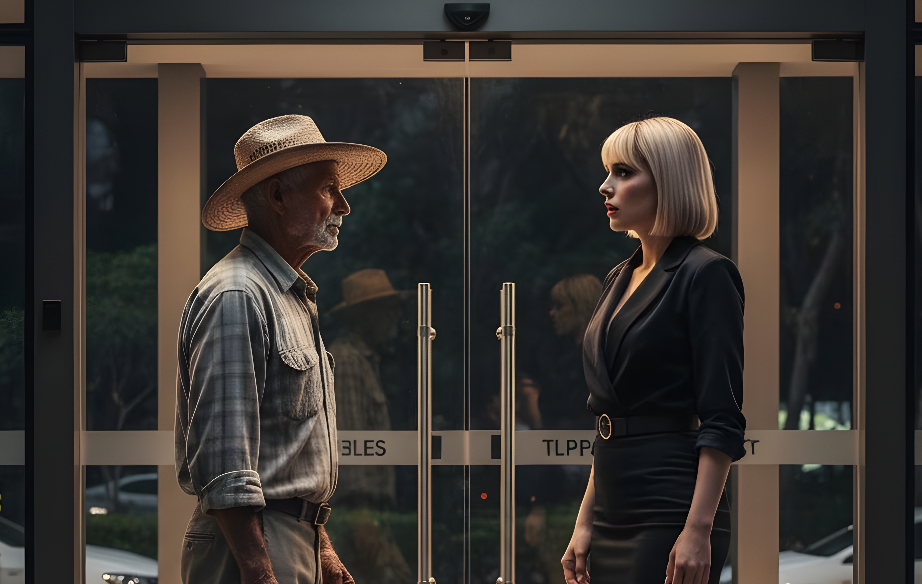My name is Don Ramón García, a 58-year-old living in a small fishing village in Veracruz, by the Gulf of Mexico. For as long as I can remember, I have made my living from fishing—the sun has weathered my skin, and the rough ropes have toughened my hands.
My beloved wife, Lucía, passed away from cancer fifteen years ago. Since then, I have raised our daughter María on my own, who remains my greatest pride and the reason I continue each day. She was always a bright child, well-mannered and blessed with a smile that could brighten the entire dock.
When María was accepted into a university in Mexico City, my heart overflowed with joy and anxiety. I worried about how I could afford her accommodation, books, and meals. But María reassured me with a tight hug, saying,
“Dad, trust me. I will make it through.”
True to her word, after five years she graduated and landed a job at an international company. The day she called to share the news, excitement kept me awake all night.

Each month without fail, María transferred 90,000 pesos. She would always tell me,
“Dad, don’t worry. Things are going well for me. You just rest.”
Yet, what caused me the deepest pain was her absence—she never visited home in an entire year. Every time I called, she claimed to be tied up with work meetings or business trips.
In my little home by the sea, silence became a constant companion. The only sounds were the waves crashing and an old radio playing my late wife’s cherished boleros.
One day, I impulsively decided to visit Mexico City to surprise my daughter. I endured a seventeen-hour bus ride carrying a backpack filled with her favorite treats—dried fish, stuffed peppers, and a jar of traditional coffee.
The building where she was supposed to live was a luxurious condominium in Polanco, surrounded by expensive cars and uniformed guards. Wearing my worn shirt and straw hat, I felt out of place.
When I asked the guard about María García, he frowned and replied, “No one by that name lives here. But there is a foreign woman named Misa on the twelfth floor.” That name stunned me.
I waited outside until nightfall. At seven, a taxi stopped, and a blonde woman with heavy makeup and a short skirt stepped out. She walked confidently, yet her eyes revealed the truth—they were my daughter’s eyes.
“María!” I shouted.
She froze, pale as moonlight.
“Dad… what are you doing here?”
“I came to see you. I miss you and I am so proud of you…”
She averted her gaze as a tall foreign man in an expensive suit emerged from the taxi, placing an arm around her waist and kissing her hair like she belonged to him. My world shattered in an instant.
“Dad, please… go. I’ll explain later,” she pleaded.
That night I wandered aimlessly along Paseo de la Reforma while the city glittered like an inverted sky. I wept quietly, unable to accept what I had witnessed.
I stayed in a cheap lodging in the Doctores neighborhood and couldn’t sleep. Near dawn, my phone buzzed with a message:
“Dad, please don’t leave. I’ll be with you at nine. Forgive me.”
At the appointed hour, she appeared—without makeup and her hair tied back, looking like a different person. Trembling, she knelt before me.
“Dad… the company closed months ago. I lost my job and fell into debt. I tried to hide it. Then I met Miguel, the man from last night. He promised help if I accompanied his foreign associates to dinners. But you know what that implied…”
Tears streamed down my face as she continued amidst sobs:
“All the money I sent you, Dad… came from that. I feared you’d be ashamed of me.”
With rough hands, I embraced her face tenderly.
“María, my daughter… material things can be regained, but dignity cannot. Let’s go home—you are no longer alone.”
She cried deeply on my chest, and in that moment, I knew she could be saved.
A month later, we returned together to Veracruz. Locals whispered as they saw her—some with disdain, others with pity—but I paid no mind.
Using what little we had, we opened a dry seafood stall near the port. I fished while María managed online sales. Though it was tough at first, orders gradually arrived from all over the country.
One day, she handed me an envelope.
“Dad, this is the last of what I owed Miguel. I have closed that chapter.”
I embraced her and finally saw a genuine smile after years.
Two years on, María registered as an organ donor. When I asked why, she said:
“You taught me to live with purpose. I want to leave something good behind, even if it’s after I’m gone.”
Later, she was invited to share her story of resilience on local TV. Watching from the audience, my eyes welled with tears.
The host asked, “What helped you climb out of despair?”
Looking at me, María smiled and replied:
“My father’s love. Even when I hit rock bottom, he never turned his back on me.”
That night, standing before the altar holding my wife’s photo, I lit a candle and whispered,
“Lucía, you may rest now. Our daughter has returned—pure, strong, and alive.”
The ocean gently lapped against the rocks outside while inside, the aroma of fried fish and rice with beans filled the kitchen.
As we ate together, I realized that there is no feast warmer than one shared by a heart that has been forgiven.
- No child is born wanting to fall.
- Some simply get lost in the darkness of fear.
- Sometimes, a father’s quiet, patient, unwavering love
- becomes the only light guiding them safely back home.
